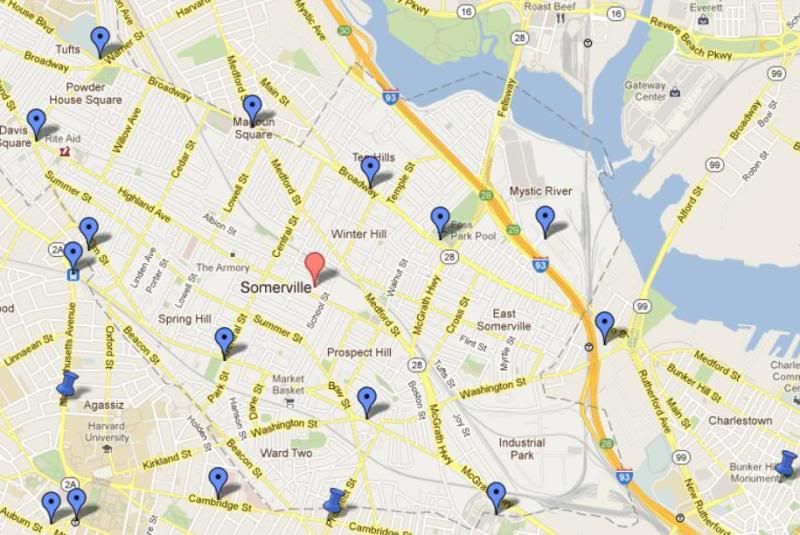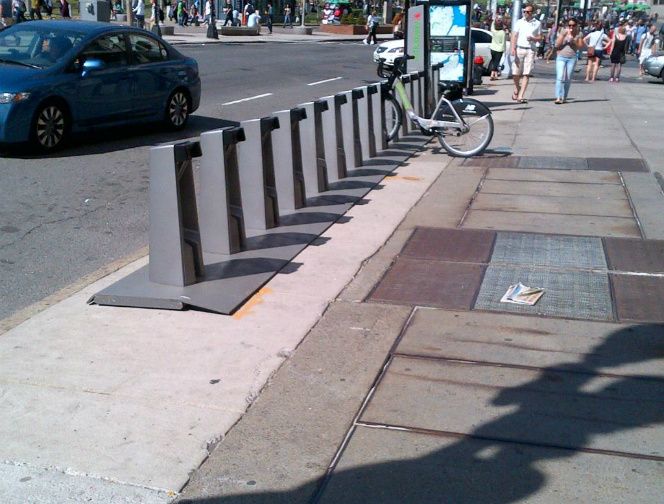statler
Senior Member
- Joined
- May 25, 2006
- Messages
- 7,939
- Reaction score
- 547
Why I'm too chicken to ever ride a bike in the city (though I think it's an otherwise great idea)
http://www.boston.com/yourtown/news...le_hubway_bi.html?p1=Well_Local_YourTownlinks

Red dots represent possible Hubway bicycle rental stations, set to land in Somerville by about July.
By Matt Byrne, Town Correspondent
City officials released a first-look map of possible locations for eight Hubway bicycle rental stations in Somerville.
The stations, sprinkled throughout the city's myriad squares, are expected to open by about July.
Before the end of the summer, Hubway locations are expected to sprout in Brookline and Cambridge, expanding the network's reach beyond Boston city limits.Hubway launched last summer in Boston with 61 stations and 610 bicycles. Hubway riders logged more than 140,000 rides before the season closed on Nov. 30, according to the City of Boston. The system attracted more than 3,700 members in 2011 and almost 30,000 casual users.
Hubway offers three membership options for riders: an annual membership for $85; a casual, three-day membership for $12; or a casual 24-hour membership for $5. Rides less than 30 minutes are free with any membership. Longer rides cost from $1.50 for just under an hour to $75 for rides lasting between seven and 24 hours. Registered annual members receive a 25 percent discount.
Never mind that we still don't have 61 stations in Boston and in fact have fewer stations than last year.

William Penn really knew what he was doing when he designed that city. It's still one of the most thoughtfully laid out and situated downtowns anywhere in North America.

